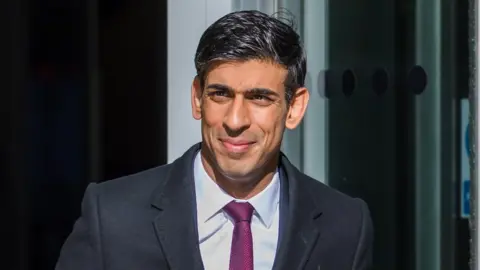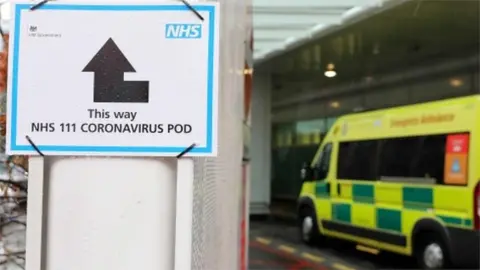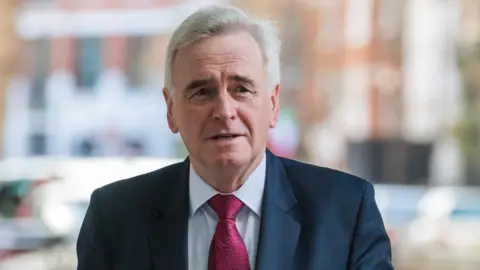Budget 2020: Should we expect a coronavirus Budget?
 BBC
BBCWill Chancellor Rishi Sunak's first Budget on Wednesday go down in history as the "coronavirus Budget"?
The latest round of pre-Budget press coverage takes it as read that he will announce extra cash for efforts to combat the virus.
Mr Sunak himself told the BBC's Andrew Marr the government was looking at "a range of scenarios" and making sure it was well prepared for all of them.
But he refused to be drawn on details about which financial measures he was planning.
He said the government would give the NHS "all the support it needs to get through this" and added that he was looking at "options to provide temporary support to small businesses".
The chancellor also said there would be financial help to people hit by the coronavirus who did not qualify for statutory sick pay, but were being asked to self-isolate instead of going out to work.
"People should not be penalised for doing the right thing," he said.
Urgent action
Mr Sunak was obviously at pains to strike a reassuring note, but his comments underlined that it is still unclear how significant this Budget is going to be.
On the one hand, many commentators think the coronavirus will inhibit Mr Sunak's efforts to reshape the UK's economy, with more dramatic measures postponed until this year's second Budget in the autumn.
 EPA
EPAOn the other hand, the chancellor's political opponents are calling for him to grasp the nettle now.
Speaking on the same BBC programme, shadow chancellor John McDonnell said Mr Sunak's debut would be "the most important Budget since the Second World War".
He called for urgent action to combat not only the coronavirus, but also climate change and what he described as the "absolute crisis" in health and social care.
"My advice to Rishi Sunak is, don't put things off," Mr McDonnell told Mr Marr.
The Institute for Fiscal Studies is also keen to see Mr Sunak act decisively to combat the coronavirus.
IFS director Paul Johnson called for a two-pronged response: "First, to ensure that public services continue to deliver and that benefits provide appropriate support to households over coming months. Second, to minimise the extent to which a temporary downturn causes permanent damage to the economy and therefore our living standards."
Stimulus package
As you might expect, Mr Sunak is being cagey about the contents of the Budget, telling questioners they will have to wait until Wednesday for the details.
But that hasn't stopped the newspapers from speculating about individual measures - including, in some cases, some surprisingly precise figures.
 AFP
AFPThe Sunday Times predicts a "windfall for families", heralding plans to pay an extra £160 a week to parents of new-born babies who fall ill.
In its own interview with Mr Sunak, the Sunday Telegraph quotes him as announcing a £400m investment package aimed at getting up to 6,000 rough sleepers off the streets.
According to the Mail on Sunday, Mr Sunak is expected to announce a £320m business rates stimulus package that will allow some independent shops to claim discounts worth tens of thousands of pounds.
However, at the same time, says the paper, the government is launching a legal bid to try to prevent shopkeepers who operate cash machines receiving business rate refunds worth £430m.
Mansion tax?
The Independent has commissioned a survey which it says shows support for higher property taxes to fund spending on the NHS, social care and the fight against climate change.
The poll by BMG found that a "mansion tax" on properties worth more than £1m was backed by 63% of those questioned, while 16% opposed it.
But the paper admits that the tax is unlikely to be included in the Budget, echoing media reports elsewhere that the idea was considered, then shelved after a backlash from Conservative MPs and voters.
 EPA
EPAAnd the Observer reckons that plans to kickstart the government's "levelling up" agenda will probably be delayed until the autumn Budget.
That phrase, much used by government ministers, has drawn criticism from some commentators who describe it as essentially meaningless.
But Mr Sunak said that for him, it was about "supporting opportunity" and making sure that people's prospects in life were not determined by where they were born or grew up.
